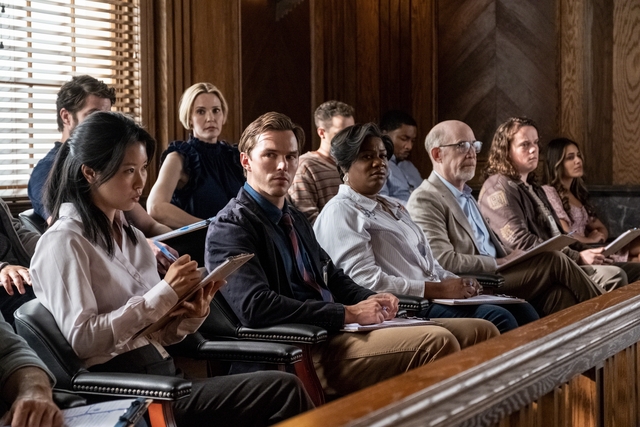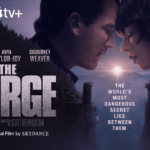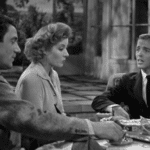Clint Eastwood’s latest directorial feature, Juror #2, follows Nicholas Hoult as a young soon-to-be father selected for a jury case involving a defendant charged with killing his girlfriend on the side of a road on a dark, stormy night. Early in the trial, Hoult’s character, Justin Kemp, begins to suspect the case may have ties to him he never expected, complicating his role as Juror #2.
Without spoiling too much—though the trailers reveal the film’s earliest twist—it’s clear Kemp is caught in a moral quandary. What is the right thing to do, and what is the wrong thing to do? Is an innocent man about to be convicted? Are the other jurors determined to railroad the defendant into jail? These appear to be the central questions Eastwood is exploring in this film.
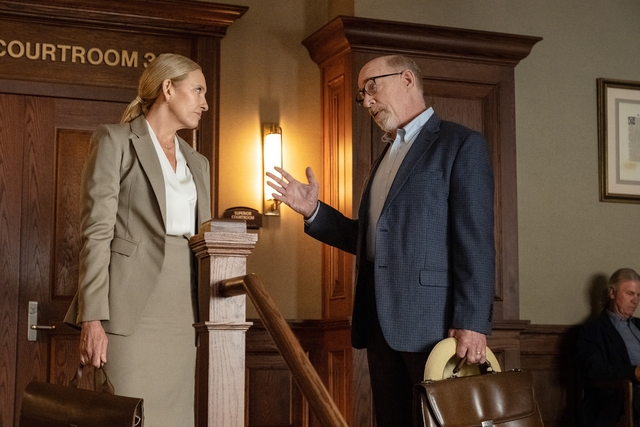
Toni Colette, J.K. Simmons in Juror #2 (Photograph by Claire Folger/Warner Bros.)
Regrettably, while these discussions about the justice system, police negligence, and the principle of “innocent until proven guilty” are worthwhile, Juror #2 doesn’t fully dive into them. Instead, the film merely skims the surface of these issues while also avoiding much of the characters’ interiority. That’s not to say the acting isn’t praiseworthy—Hoult delivers a strong performance as Kemp, and his struggles are palpable. Toni Collette, playing the prosecutor who’s simultaneously campaigning for Georgia DA, provides a glimpse into the aforementioned broader themes, but even her character’s internal conflict feels underexplored, leaving the film’s commentary disappointingly shallow.
The greatest challenge for Juror #2 may simply be the looming shadow of 12 Angry Men. While this film modernizes the courtroom drama with a diverse cast and contemporary settings, it treads familiar ground and occasionally feels derivative. Certain jury room scenes closely echo the probing exchanges of Henry Fonda’s Juror #8, and even the scrutiny of a witness mirrors key moments from 12 Angry Men.
Another shortfall is the case itself. As someone who watches a fair share of crime dramas, I found the evidence presented frustratingly thin. Most of the jury seems to embody the obstinacy of Lee J. Cobb’s Juror #3 in 12 Angry Men (he’s the final holdout), making their certainty difficult to understand given the lack of compelling evidence. If the case doesn’t feel believable, it becomes harder to buy into the film as a whole.
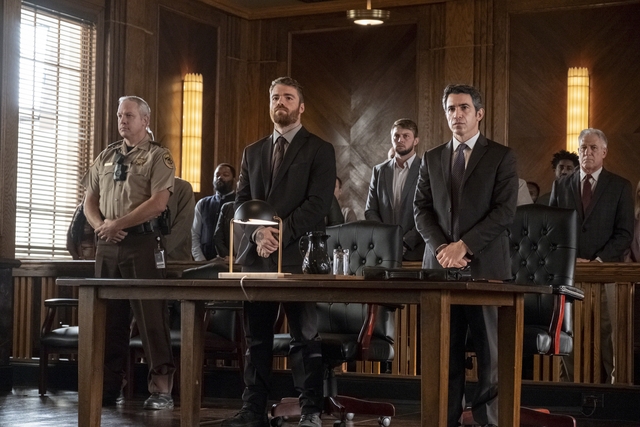
Gabriel Basso, Chris Messina in Juror #2 (Photograph by Claire Folger/Warner Bros.)
That said, Juror #2 does have its moments. Despite the predictable beats, there are enough scenes to sustain curiosity about what happens next, maintaining tension in key moments. However, the film often opts for the simplest resolutions, leaving many plot points feeling underwhelming. Even the final scene, which aims to deliver a dramatic conclusion, feels muted—by that point, the stakes have become inconsequential.
Ultimately, I lean only slightly positive on the film, thanks largely to the performances of Collette, Hoult, and Chris Messina, who manage to ground the narrative just enough to sustain viewer interest. The film had potential, but it ultimately doesn’t deliver. While it’s a shame Warner Bros. buried this film after such a brief theatrical release, perhaps they recognized that the jury—this time, the audience—wasn’t going to come in for Juror #2 after all.
